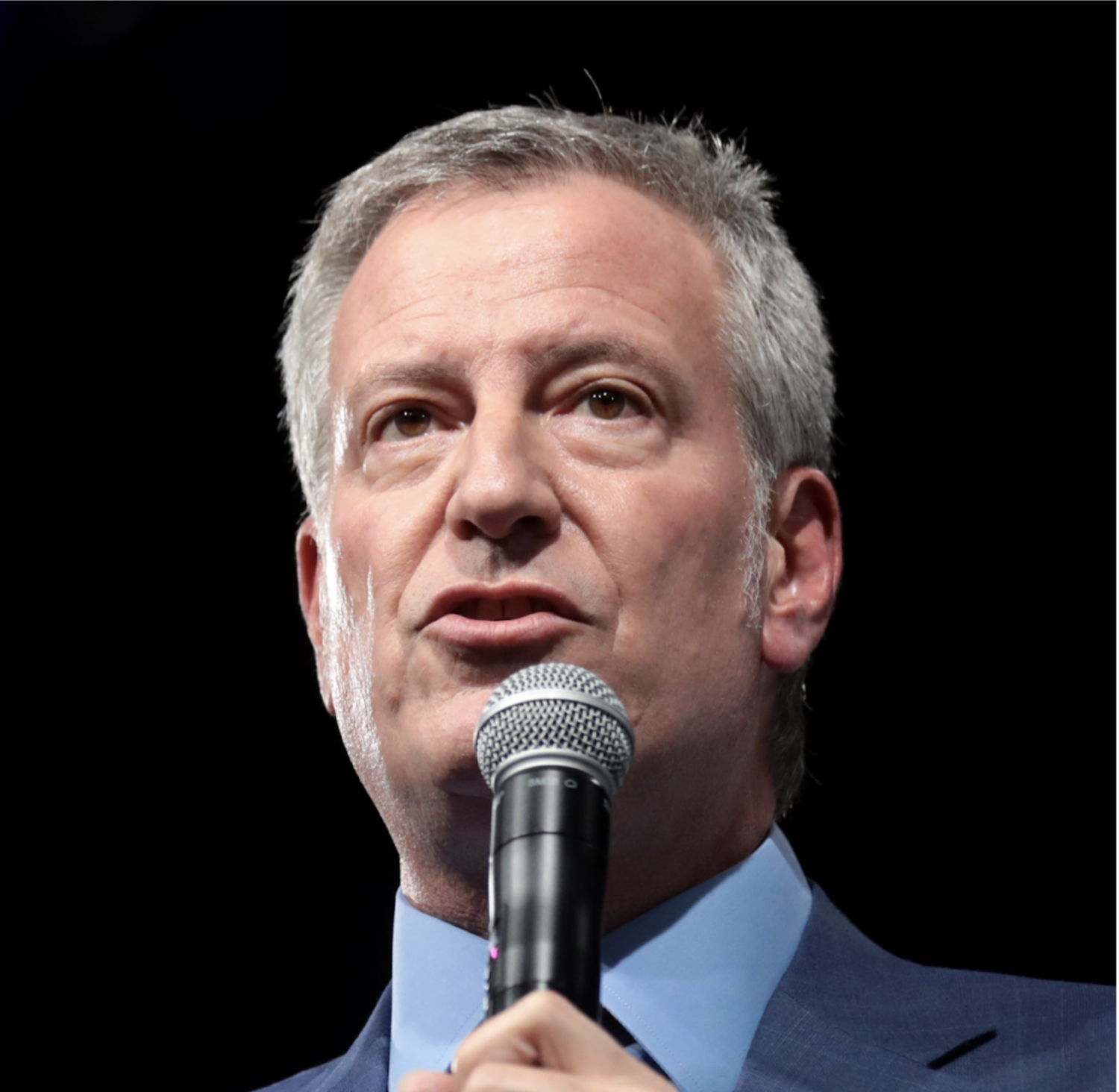Bill de Blasio served as the 109th mayor of New York City from 2014 to 2021. During this time, NYC faced numerous unprecedented challenges including the COVID-19 pandemic, giving de Blasio the unique opportunity to lead the largest city during a crisis with no previous playbook. The HPR sat down with de Blasio to hear his unique perspective on how the influx of migrants impacts localities both positively and negatively. De Blasio also offered his perspective on what Democrats need to do to win across the country in upcoming elections.
This interview has been edited for length and clarity.
HPR: The migrant crisis is hitting NYC particularly hard. Give us a retired mayor’s perspective on what’s happening: What’s going well and what needs to be improved?
BDB: Look, I do believe that Mayor Adams is right to say that the state and federal government should be doing more. I do not believe they’re at maximum capacity in terms of helping NYC. We just saw that the state of New York has a huge budget surplus; they should be giving some of that to NYC to address the issue. I’d like to believe the federal government, even with the divisions within, could do more.
That said, I do not think the crisis is as big as it is portrayed to be. It’s hurting New York City budgetarily, there have been some tragic individual situations that are very troubling to me, don’t get me wrong. On a personal level, we’ve seen some things that make me very unhappy, but I don’t attribute them to everyone who has come to New York City, their individual acts.
There’s also positives. We need more immigration into New York City, we need more people willing to work hard to continue the progress our city has made recovering from COVID. And I think a lot of the immigrants who have come up actually helped on that level. So there’s been an imbalance in the discussion, a lack of recognition of that.
HPR: How does the federal government’s inaction on immigration, or any broader crisis in general, impact a mayor’s ability to communicate effectively to their constituents?
BDB: It’s a constant challenge, I think one of the things that sort of isn’t taught enough in public policy programs is how unfriendly the federal government can be, even a theoretically friendly federal government, in terms of the actual day-to-day work of running a city.
There are so many arbitrary decisions made in Washington without reference to what it takes to actually do the work on the ground at a city level. A city like New York is essential to the nation as a whole, and to me it feels like there’s times when the federal government’s just like “fend for yourself.” That is not my vision of what a federal government should be doing. It should be looking out for all of its constituent cities and states, and that often is not the case.
HPR: Tom Souzzi recently flipped a Republican seat. He did this in part by running to the right of the “typical” Democrat on immigration. Is that a model that Democrats should try to follow elsewhere and, if so, how do we make sure that the Democratic Party can remain a big tent where Tom Souzzi and AOC both belong?
BDB: I know Tom Souzzi very well. I’m very comfortable with him under the same tent I am under. We agree on the vast majority of issues. I think it’s absolutely happening every day. It’s been happening for decades that Democrats are different in different regions of the country. But that has allowed us, as a unit, to create a lot of progressive change, like the Inflation Reduction Act on climate or like Obamacare. So I find that big tent to be very productive, and it was very productive even going back to the time of Franklin Roosevelt.
I do think it’s fine if someone like Tom Souzzi takes a more moderate line to address the concerns of his constituency. That said, my bigger point about the Democratic Party would be it’s still too much of an elite party. I think Bernie Sanders has made this point really well. It’s still too much of an elite party, we’re still missing a lot of people who could be with us, because they feel too much distance, especially working class folks, and that problem needs to be addressed.
That’s much bigger than whether a candidate moderates on a particular issue like immigration. The much bigger question is the Democratic Party sort of returning to its soul, returning to its roots, if it wants to have a bigger constituency.



